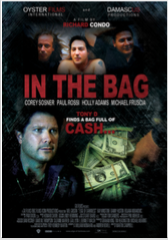Another earnings season is here for Canada’s big banks, and they are likely to be dogged by another round of housing-related questions.
While the lenders are expected to post solid second-quarter results, concerns about the Canadian housing market have persisted, and new rules related to residential mortgage underwriting are anticipated to somewhat slow down originations for the Big Six.
CIBC Capital Markets analyst Robert Sedran said there “is simply no precedent for the volume of regulatory change that has been thrown at the market … particularly late in the economic cycle.”
“Housing will inevitably be a core topic, but an orchestrated slowdown in housing activity is far less impactful on bank earnings and balance sheets than Canadian homeowners being unable to make their mortgage payments,” said Sedran in a note on the Canadian banks last week. “The music will stop inevitably, but many warning signs leading up to this have yet to flash.”
A relatively rosy outlook, due to solid economic growth and jobs numbers, as well as the three interest rate hikes by the Bank of Canada since last summer, could keep unpleasant surprises to a minimum for the banks this quarter.

Yet the Canadian housing market is still being watched closely — and by some intriguing names. Steve Eisman, of Michael Lewis’s “The Big Short” fame, has recommended “bearish bets” against Canadian financial companies, according to a recent Bloomberg report.
“I think Canada is OK,” Eisman said in a video. “But I think Canada’s going to have some issues with their housing market.”
Canada’s banks are big players in the housing market, which has clearly cooled over the past year. The Canadian Real Estate Association recently reported national home sales in April fell 13.9 per cent from a year ago, and that home prices (albeit a metric that is “heavily skewed” by sales in the Greater Vancouver and Greater Toronto areas) were down 11.3 per cent.
“We still view housing activity and prices as soft and downside risk as real,” said a May 16 note from RBC Capital Markets on the banks.
The culprit, according to the CREA, were the new regulations. Those changes have also raised the prospect of would-be homebuyers turning to institutions other than the banks for financing.
That revamped “B-20” guideline, which includes a new stress test for uninsured mortgages, came up during the first-quarter conference call for alternative lender Home Capital Group Inc. Home Capital chief executive Yousry Bissada said those affected by the revised guideline are having trouble nailing down numbers because of changes in the market.
“Private lenders are getting some business because a) they don’t have that stress test, and b) sometimes they don’t have the same documentation requirements, for instance,” Bissada said. “But private lenders have limited capital. And at some point, they are going to have to be more particular about what they can lend or they’re going to simply run out and people are going to have to find alternatives like us, again.”
Maureen Jensen, chair and chief executive of the Ontario Securities Commission, said during a recent Toronto Centre panel that there has been a focus on de-risking banks, and now growth in syndicated mortgages and mortgage investment corporations.
“They’re kind of innovating right between insurance, and securities and some some banking,” Jensen said of the alternative institutions. “They’re very small still at this point, but can grow substantially.”
Amid the changes, Canadian banks have recently rejigged mortgage rates, jockeying for position in the market. There are other sources of uncertainty as well, such as the ongoing North American Free Trade Agreement talks and Canadian politics around pipelines. National Bank Financial analyst Gabriel Dechaine said in a note on the banks that they “believe in waiting for clarity on outstanding macro items before reviewing our cautious sector stance.”
“Key macro concerns include the ever-present housing overhang, NAFTA uncertainty and other Canadian economic/political dynamics… that are viewed as negative for capital allocation decisions, especially in comparison to the U.S.,” Dechaine wrote.
Still, the expectation for the banks is that will enjoy yet another good quarter.
“We expect that the seemingly perpetual clouds around housing will have some difficulty sustaining themselves in the face of 10% earnings growth,” said a note from Eight Capital.
Canadian Imperial Bank of Commerce will kick off the earnings season with second-quarter results on Wednesday, May 23. Royal Bank of Canada and Toronto-Dominion Bank will follow on May 24, Bank of Nova Scotia on May 29, and Bank of Montreal and National Bank of Canada on May 30.
Financial Post
• Email: [email protected] | Twitter: 

















